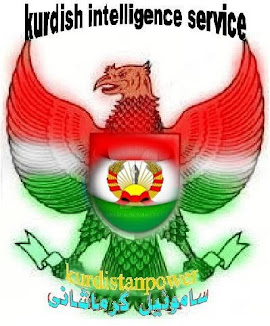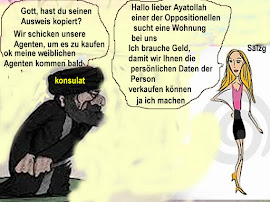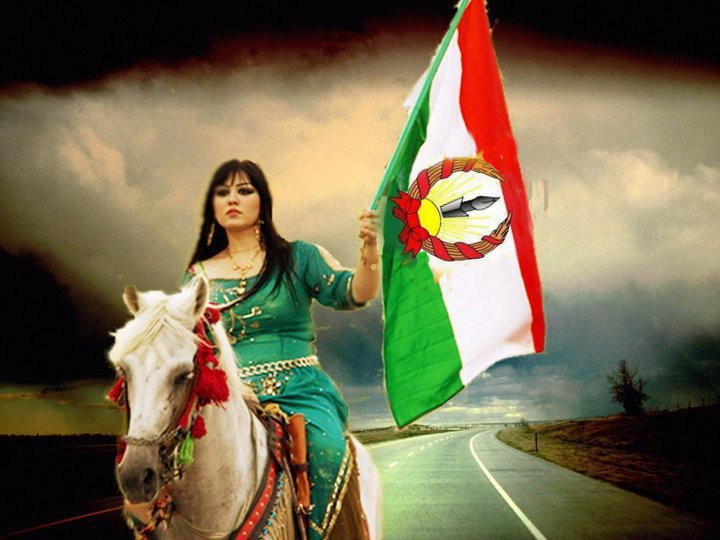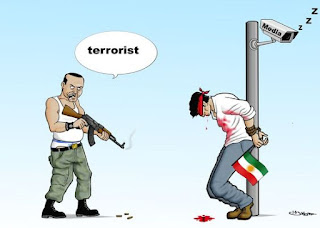Turkey’s Kurdish Conflict and Retreat From Democracy.
The relationship between conflict resolution and democratic consolidation is a puzzle. It is tempting to assume that in the spirit of “all good things go together,” the two move hand in hand—that resolving civil conflict helps consolidate democracy, while progress on democratic consolidation facilitates the resolution of conflict. Yet in practice, complexities and contradictions abound.
So, it might be expected that prospects for resolving Turkey’s Kurdish conflict depend on progress in the country’s attempted democratic consolidation of recent decades. But in fact, the record shows otherwise. Examining the conflict-democracy link in Turkey reveals interesting lessons that cast doubt on the simplistic assumption of a natural relationship between conflict resolution and improvements in democratic quality.
LACK OF DEMOCRACY AND THE EMERGENCE OF ARMED CONFLICT
In its origins, the Kurdish issue in Turkey suggested that a lack of democracy could fuel existing ethnic divisions in a society. Turkish nationalism intensified after the 1980 military coup. This authoritarian nationalism failed to recognize any alternative national or ethnic identities and provided a catalyst for the rise of Kurdish nationalism and its armed wing, the Kurdistan Workers’ Party (PKK), in the 1980s.
Despite a formal transition to democracy in 1983, Turkey suffered from a severe democratic deficit in the 1980s and the 1990s. The state apparatus constantly rejected and suppressed Kurdish claims to a distinctive identity, instead of effectively channeling these demands into democratic institutions. For instance, although the Kurdish language had been banned in state institutions and public use by the late 1930s, a law prohibiting the use of Kurdish was introduced only in 1983 (and was later lifted in 1991). The military turned much of the Kurdish region in Turkey’s southeast into a militarized zone and committed human rights abuses in the region. The situation worsened when the PKK—formally established in 1977—started its operations in 1984 and was countered by a military reaction from the Turkish government.
Various measures taken by Ankara in the fight against terrorism, such as the state of emergency in 1987 and the Anti-Terror Law of 1991, led to further serious human rights abuses and fomented a significant degree of mistrust between the Turkish state and the Kurds. This soon led to a vicious cycle: the suppression of Kurdish identity intensified the armed conflict, which in turn pushed the ruling elite to resort to further repression and violence instead of taking concrete steps toward resolving the conflict or consolidating democracy.
FROM A VICIOUS TO A VIRTUOUS CYCLE
This vicious cycle started to change into a virtuous one when Turkey’s democratic reform process began at the end of the 1990s. This reform process was linked to the European Union’s democratic conditionality for membership through the Copenhagen political criteria and to the window of opportunity for reform that was opened by the capture of the PKK leader Abdullah Öcalan in 1999 and the group’s military defeat. These developments reduced the political adoption costs of these reforms for the government.
Kurds were granted the right to broadcast and to name their children in their own language, as well as to learn their language in private courses. Other more general democratic reforms, such as abolishing the death penalty and lifting the state of emergency, also had a significant impact on the lives of the Kurds.
This new state of affairs had a positive influence on the conduct and effectiveness of Turkish foreign policy in the Middle East and North Africa (MENA) and beyond. The international community feared a Turkish military intervention in Iraqi Kurdistan in the early 2000s, but Turkey in fact developed excellent economic and political relations with the Kurdistan Regional Government. Turkey’s newfound peace at home made the country feel more secure on the regional front.
This confidence was also behind Turkey’s mediating efforts in the wider region, such as between Israel and Syria in 2006 and between Syria and Iraq in August 2009, as well as in Ankara’s multilateral regional initiatives such as the cooperation pacts signed with Syria and Iraq in 2008. During these years, the West praised Turkey for its unique demonstration that democracy and Islam could successfully co-exist as a model that others in the MENA region could emulate. Internal stabilization and democratic reform seemed to be advancing hand in hand.
STAGNATION AND RETURN TO ARMED CONFLICT
Turkey started backsliding from democracy and the rule of law in 2004; this trend accelerated dramatically from 2010 onward. PKK attacks recommenced in 2004 and intensified in the second half of the 2000s. Although this picture may suggest a direct causal relationship between the deterioration of Turkish democracy and the reescalation of the Kurdish conflict, in fact the picture is more nuanced.
In 2009, when Turkish democracy was already stagnating, the Justice and Development Party (AKP) government initiated a Kurdish peace process, also known as the Kurdish opening or the resolution process. This process failed, largely due to hostile reactions from the main opposition parties and the massive public outcry that followed the entry of thirty-four unarmed PKK rebels from northern Iraq into southeastern Turkey, where they were greeted by gathered crowds. The process was rebooted in 2012–2013, when the regression of Turkish democracy had intensified. The June 2013 Gezi Park protests against the erosion of Turkish democracy and fundamental rights took place while the peace process was still on track.
The Turkish government revitalized the process mainly because of the growing number of casualties in the armed conflict and the emergent prospect of an autonomous Kurdish region in Syria after the onset of the civil war there in 2011. Unlike in 2009, there was now significant support for the peace process from different sections of Turkish society, including the main opposition party, the Republican People’s Party (CHP). The efforts came close to achieving a successful outcome. Yet, the process ultimately failed before the June 2015 Turkish parliamentary election when tensions between the pro-Kurdish Peoples’ Democratic Party (HDP) and the AKP grew after the HDP leadership made a key campaign pledge not to allow then Turkish prime minister Recep Tayyip Erdoğan to become president.
A CONFLICT-DEMOCRACY PARADOX
The trajectory of these initiatives to resolve the Kurdish conflict attests to a paradoxical relationship between democratic consolidation and conflict resolution. The prospects of resolving the conflict became more concrete as Turkish democracy progressively worsened.
This counterintuitive trend can still be seen today. A study carried out in April and May 2017 by the Istanbul Policy Center suggests that some prominent Kurdish groups in the southeast prefer to strike a peace deal with President Erdoğan rather than wait for democratization openings at the national level. These groups are calling for normalization and a return to peace talks at a time when the country is suffering from a profound democracy crisis. They are now of the opinion that peace is more likely to be reached by striking a bargain with Turkey’s strong leader and majoritarian government than by demanding steps toward democratic consolidation.
Some Kurdish leaders adjusted their tactics after the HDP pushed for democratic reform and against Erdoğan’s presidentialism in the June 2015 election—a choice that backfired and effectively ended the peace process. Many Kurdish representatives now accept that the AKP has to be their interlocutor for reconciliation, instead of turning to the CHP, which could be considered their natural ally. The June 2015 election provided the Kurds with a painful learning experience, as violence erupted in the southeast after the contest. The lesson they have drawn is that strong pressure for democratization can militate against peace.
Erdoğan is now politically much stronger than in 2009 or 2012, whereas the opposition is significantly weaker. Societal unease with peace negotiations and concessions would now be less costly for Erdoğan than before. And anyway, harsher restrictions on the media and civil society would make it harder for any such opposition to receive a wide hearing.
CONCLUSION
The interweaving of the Kurdish conflict and Turkey’s back-and-forth evolution on political reform suggests three key insights into the relationship between democracy and intrastate conflict resolution.
First, a lack of democracy and fundamental freedoms coupled with repression of ethnic identity may escalate existing ethnic tensions into armed conflict, but the ultimate resolution of the conflict may not necessarily depend on the consolidation of democracy. Especially in the initial stages of intrastate conflict resolution, democracy may not constitute a necessary condition for peace. In the Turkish case, the peace process was implemented successfully at a time when democracy was in regression.
This also applies the other way around: ethnic conflict is not necessarily the ultimate obstacle to democratic consolidation in conflict-ridden societies. Again, in the Turkish case, the temporary end to the conflict had no positive impact on furthering Turkish democracy.
Second, conflict actors may prefer to strike agreements with strong leaders or majoritarian political parties at the expense of democratic consolidation. Some Kurdish groups now advocate this strategy, cutting across any positive one-to-one relationship between democracy and intra-ethnic conflict resolution.
Third, the Turkish case points to the need to distinguish between the initiation of intra-ethnic conflict resolution and itssustainabilityover time. The significance of democracy for conflict resolution is likely to increase when the sustainability of peace is at stake. In other words, once peace is made, it may be difficult to sustain for a long time in the absence of democracy. The strong leadership that pushes through a peace deal today can easily reignite conflict for political gain tomorrow. Similarly, initial plans for a resolution may fail in the medium to long run when the curbing of fundamental freedoms and the erosion of the rule of law may keep ethnic tensions alive and polarization in society high.
Moreover, problems in sustaining peace may leave a country vulnerable and weak on the foreign policy front when an intrastate conflict extends beyond the state’s borders. Today, Turkey’s unresolved Kurdish conflict limits Turkish policymakers’ options in Syria. That weakens Ankara’s fight against the self-proclaimed Islamic State and puts Turkey at loggerheads with its key allies, such as the United States and European capitals, that have explicitly declared their support for the Kurdish Democratic Union Party (PYD), which Turkey equates with the PKK. The overwhelming fear of Kurdish separatism prevents Turkey from having a foreign policy vision in its southern neighborhood.
Senem Aydın-Düzgit is an associate professor of international relations at the Faculty of Arts and Social Sciences of Sabancı University and a senior scholar and the research and academic affairs coordinator at the Istanbul Policy Center. She is a member of Carnegie’s Rising Democracies Network.
E. Fuat Keyman is the director of the Istanbul Policy Center and a professor of international relations at the Faculty of Arts and Social Sciences of Sabancı University.
The Carnegie Endowment is grateful to the Robert Bosch Stiftung, the Ford Foundation, and the UK Department for International Development for their support of the Rising Democracies Network. The opinions expressed in this article are the responsibility of the authors.
http://carnegieendowment.org/2017/07/10/turkey-s-kurdish-conflict-and-retreat-from-democracy-pub-71453



















.jpg)










.jpeg)






























Inga kommentarer:
Skicka en kommentar